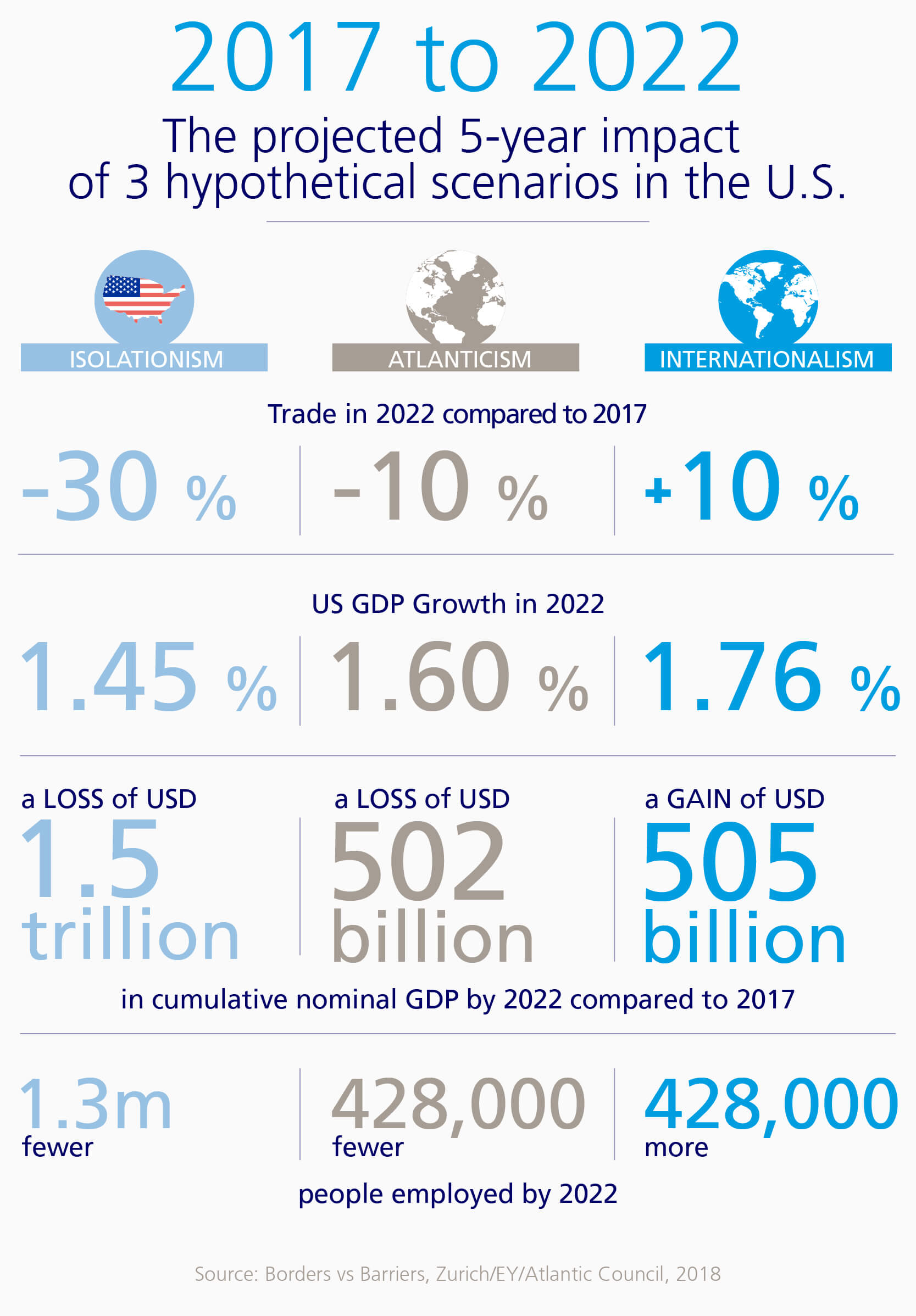Protecting against Isolationism: measuring the threat that trade disruption in the U.S. poses to your business
Global risksInfographicMay 3, 2018
The global balance of power is shifting. How can businesses quantify the risk of U.S. isolationism?
Despite volatile stock markets, the economic outlook for 2018 and 2019 is largely positive with every major economy expected to grow. But with increasing geopolitical tensions, warnings of another recession and longstanding trade agreements at risk, business leaders must not be complacent. Navigate your way through the infographic to understand the threat that trade disruption in the U.S. could pose to your business, and learn how you can remain resilient in the face of uncertainty.




- Map out the geographic footprint and trade flow of your business’ global value chains.
- Consider the interconnectedness of the global value chain and how geopolitical forces could impact this.
- Assess the physical location of your organization. Changes to trade policies, education investment and immigration laws affect talent acquisition. Changes to regulatory structures and ruling parties may affect the availability and cost of capital.

- Assess the modularity of your enterprise in the event that a division operating in a region affected by a geopolitical disruption can effectively be cauterized with minimal impact to the rest of the organization.
- Remain resilient to misinformation campaigns by avoiding sensationalism and investing in knowledge. Supplement internal knowledge and practices by needed external expertise.
- Total Risk Profiling® is a workshop exercise that provides a structured approach to identifying, assessing and monitoring risks and improving reactions. A facilitator works with an organization’s team to develop an in-depth risk profile, identifying triggers and consequences through various risk scenarios. Borders vs Barriers, Zurich/EY/Atlantic Council, 2018 outlines how the TRP® exercise can help identify vulnerability to protectionism, and quantify financial severity related to the isolationism scenario.

- Preparing for a shock geopolitical event that is difficult to predict is equally difficult to prepare for. It’s important to create an open corporate culture whereby an organization can organize, communicate and act decisively when disruption occurs.
- Overcome natural biases through company-wide training from board level through every tier of an organization.
- Safeguard against risks that arise from public and political pressures questioning businesses’ contribution to the local community and economic developments by adopting a well-researched public affairs strategy that is driven by business values and needs.





